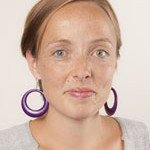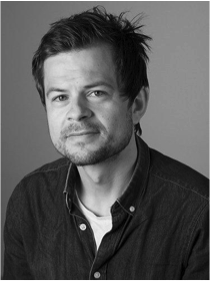Halvar A. Kjærre: “Politics and Mobilities”
Tarje I. Wanvik: “Migration and Social Inequalities”
Halvar A. Kjærre (Department of Social Anthropology, UiB) and Tarje I. Wanvik (Department of Geography, UiB) have recently been recruited to the IMER Bergen research unit as PhD candidates.
In this seminar they will present their PhD projects. After the presentation there will also be a presentation of IMERS new webpages.
Ida Tolgensbakk – Swedish migrants in Norwegian media and popular culture
In this seminar Ida Tolgensbakk will present some findings from her PhD research on young, Swedish labor migrants in Oslo. In everyday encounters in Norway, the young Swedes are identified as such primarily through linguistic characteristics, and not for instance skin color, phenotype, or dress. That is, they are audible rather than visible migrants. Tolgensbakk will discuss what kind of consequences this has on the lives of the young Swedes, as well as look into the related questions of how the young Swedes are presented in Norwegian media and popular culture.
Ida Tolgensbakk
Department of cultural studies and oriental languages, UiO. Ida Tolgensbakk has a master in folklore studies from 2005 (on national identity in the Faroe Islands). She worked three years at the Norwegian Institute of Local history, mainly focusing on migrant’s life stories. She is now studying young, Swedish labor migrants moving to Oslo. Her research is based on life story interviews, fieldwork on a Facebook group, and texts from popular culture and the media.
Read more here: http://www.hf.uio.no/ikos/english/people/aca/idatol/
Communicating Migration Seminar Series IMER Bergen spring and autumn 2014
The IMER seminar series for 2014 will cover how migration and ethnic relations are communicated in every-day encounters, in mass and social media, in politics and in teaching at the universities. Has the way people talk about migration and migrants in different social contexts changed over time, and in which ways has it changed? How does migration theory and research fit in with other topics and theories in the social sciences, and how do results from migration research inform public debate and policy development? Communicating migration will be discussed from various angles in our seminar series on international migration and ethnic relations during spring and autumn 2014. We welcome papers that touch upon this broad theme from different angles. Historical analyses of change over time in regard to politics and public debate, research foci and disciplinary concerns are specifically welcomed. The seminar series will end with a two-day conference in October/November 2014.
IMER Abroad: PROVIR Seminar – Precarious migrants and access to welfare: Between policy, law and practice
This workshop will discuss the legal and experienced dilemmas found in the encounter between migrants living in a legally precarious situation and the welfare state in which they reside. Participants will present ongoing empirically based research on migrants’ access to welfare in policy, law and practice in various European countries. They will also discuss the particular position of youth and children in vulnerable situations. The program is available here.
BSRS 2014 Governance to meet Global Development Challenges
Welcome to BSRS2014!
The theme for BSRS2014 is Governance to meet Global Development Challenges. The event will take place from June 23rd to July 4th 2014 at the University of Bergen. Please find information about the courses, application form and other activities at the menu to your right side.
One of the courses is and IMER/SKOK PhD course.
Read more at:
http://www.uib.no/rs/bsrs/programme/bsrs-2014-governance-to-meet-global-development-challenges
The populist radical right has emerged as the spearhead of a larger renationalization process directed against positions of global and European integration. Based on anthropological fieldwork in the postindustrial towns of Doncaster (South Yorkshire, UK) and the Hungarian town of Ózd in 2015, the paper examines the various historical, material and socio-economic factors in the rise of Ukip (United Kindom Independence Party) and the extreme right-wing Jobbik (Movement for a Better Future).
In their politics of fear, minorities and migrants are marked as posing cultural-religious threats to communal harmony and the nation-state. Through participant observation and interviews with Ukip and Jobbik politicians and supporters, the paper examines how knowledge about ‘threatening others’ is produced, circulated and contested.
 Dr. Cathrine Thorleifsson holds a PhD in Social Anthropology from the London School of Economics and Political Science (2012). Her chief theoretical interests lie in anthropological approaches to the study of nationalism, migration, borders and xenophobia.
Dr. Cathrine Thorleifsson holds a PhD in Social Anthropology from the London School of Economics and Political Science (2012). Her chief theoretical interests lie in anthropological approaches to the study of nationalism, migration, borders and xenophobia.
Welcome! A light lunch will be served.
About the Seminar series:
Migration responses
Debating the current refugee crisis in Europe
The IMER Bergen Seminar series for the spring of 2016 will discuss a wide range of responses in the wake of the current migration crisis. How can the theoretical and empirical research currently being conducted on migration, ethnic relations, peace and conflict contribute to understanding the multi-faceted landscape of politics, boundaries and everyday lives of the refugee crisis?
Illustration: Wallpapercave
Hip hop music and the forging of civic bonds among minority youth in Norway
A vast body of research documents that media coverage of ethnic minorities in Norway is systematically imbalanced and problem oriented, which in turn engenders a sense of exclusion. At the same time, hip hop music and artists are today regular fixtures in various media formats, and a genre that comprises a number of prominent performers of multi-cultural background.
Set against the backdrop of the exclusionary effects of news media representations, this interview study of a group of minority youth makes evident that mass mediated hip hop music is for them taken to entail public representation of minority experiences and sensibilities that engender a sense of democratic inclusion.
By combining recognition theory and reception theory, Nærland shows how hip hop-related media coverage is experienced to involve a positive affirmation of minority identity that also contributes to the formation of civic identity and affinities. The study argues that musical media events constitute ‘moments of recognition’ where dynamics of recognition is intensified.
 Nærland further argues that recognition theory makes up a valuable supplementary framework for our theoretical understanding of the civic dimensions of media reception, and the role of popular music therein.
Nærland further argues that recognition theory makes up a valuable supplementary framework for our theoretical understanding of the civic dimensions of media reception, and the role of popular music therein.
Welcome! A light lunch will be served.
About the Seminar series:
Migration responses
Debating the current refugee crisis in Europe
The IMER Bergen Seminar series for the spring of 2016 will discuss a wide range of responses in the wake of the current migration crisis. How can the theoretical and empirical research currently being conducted on migration, ethnic relations, peace and conflict contribute to understanding the multi-faceted landscape of politics, boundaries and everyday lives of the refugee crisis?

